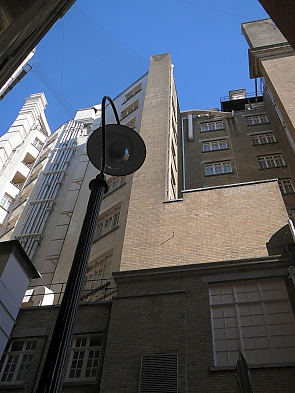The most obscure location on the British Monopoly board, branching
off Swallow Street in the apex formed by Piccadilly and Regent Street. Its name seems to derive from the Vine public house,
which existed in the 18th century, and probably earlier, when the street was longer than it is now; the section that remains
today was originally Little Vine Street. It was formerly best known for its police station, which came into existence with
the creation of the Metropolitan Police in 1829 and remained (in rebuilt form) until the opening of West End Central police
station on Savile Row in 1940. Shortly after this Vine Street’s name was changed to Piccadilly Place. Owing to a shortage
of space at West End Central, the old police station reopened in 1971 and Westminster council agreed to resurrect the street’s
original identity, so that the station could retain the Vine Street name (Piccadilly Place is now merely a narrow alley connecting
Vine Street with Piccadilly). The police station has recently been replaced by a mixed-use development and the streetscape
(or what there is of it) has been enhanced.
It was to Vine Street police station, said to have been the busiest in
the world, that the Marquess of Queensberry was taken in March 1895 to be charged with criminal libel against Oscar Wilde,
thus setting in train the series of events that eventually led to Wilde’s imprisonment. In the stories of P.G. Wodehouse,
delinquent toffs are usually carted off to Vine Street police station.
|
 |
|
|
|
 |

|
| A relatively interesting view of the dullest street in London, seen from Man in the Moon Passage |
|
 |
|
|
|

